
 |
| Luxury handbags on sale at the Century Lianhua Supermarket in Hangzhou on Saturday. Xu Yan/For China Daily |
Chinese shoppers are so hungry for luxury items that they have started snapping up Gucci wallets and made-to-order shirts while grocery shopping.
In Zhejiang province's Hangzhou, one of the largest hotbeds of the emerging wealthy class, Century Lianhua Supermarket Heping Branch has set aside an area for Italian luxury and tailor-made brands.
And business has been brisk, with six deals, including two Prada bags, made within two hours, according to a reporter from Today Morning Express in Hangzhou.
"Sales are OK, close to our expectations," said Chen Xiaohong, a director of Hangzhou Lianhua Huashang Group, the headquarters of the supermarket, though declining to tell the exact sales number.
According to Chen, the group has been working for two years with the China-Italy Chamber of Commerce and foreign distributors to get seven luxury brands like Gucci, Armani and Prada and a dozen Italian tailor-made brands into the supermarket.
"It's the first time for our group," if not nationally, Chen said. "We see it as a trial to test the market for an upgraded shopping experience."
In 2012, the 140,000-square-meter Hangzhou Tower, a shopping complex that offers 80 percent of all of the world luxury brands, raked in 5.9 billion yuan ($950 million) of sales.
Some industry insiders disclosed that Hangzhou boasts the highest sales among all cities in China for a number of luxury brands.
But professors of government administration said that sales of luxury products in supermarkets could provide a breeding ground for corruption by officials, as the supermarket allows the use of prepaid cards to buy products worth tens of thousands of yuan.
"It can breed corruption easily because the method of consumption is not transparent," said Hu Min, a researcher at the Chinese Academy of Governance in Beijing.
However, Zhu Lijia, from the Chinese Academy of Governance, argued that luxury brands in supermarkets cannot necessarily be related to corruption and will not affect consumption with public funds.
"It's common to see luxurious goods sold at special zones in supermarkets, and everyone has a right to buy them, whoever he or she is, as long as it is through justifiable means," he said, adding that corruption depends on officials' self-discipline instead of opportunities to buy luxuries.
LUXURY SALES SLOW
A luxury goods retailer said on Wednesday that sluggish sales are behind the decision to open a shop inside a supermarket, as it looks to reach more ordinary consumers.
Della Mela, a premium multibrand luxury fashion boutique, has acquired almost a quarter of the floor area at the luxury products sector in the Century Lianhua Supermarket in Hangzhou and sells high-end, custom-made suits and other products including brands like Fugato.
"Since it opened on Saturday the sales of suits, shirts and shoes have been good, while customers largely shied away from the really expensive leather products and those made of alligator skin," said Teresa Wang, marketing director of Della Mela.
She said sales at the new store are not as robust as expected, but the company will make adjustments and look into the option of opening more outlets near large grocery stores.
"We saw a major fall in sales last year, and the prospects are not optimistic for the next two years," she said. "Although we're not 100 percent sure about this new approach, we still want to try."
According to the 2013 China Consumer Market Development Report by the Chinese Academy of International Trade and Economic Cooperation, the growth of the luxury market on the Chinese mainland slowed to 7 percent last year from 30 percent in 2011, the lowest level since 2006, partly due to government policies to crack down on waste and lavish spending.
Purchases of luxury brands, particularly in the male luxury sector, will remain low this year, the report said.
Zhou Ting, director of the Fortune Character Research Center, said she believes the popularization of luxury brands after almost a decade of aggressive expansion has led some of the brands to "inevitably step down from their high, untouchable altar" and into people's daily lives.
"It has nothing to do with the sluggish luxury market, but a must-go-through phase," she said.
Gucci China said it has noticed the news online but is not sure whether the products sold there are authentic, and is having its legal affairs department look into it.

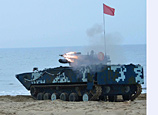

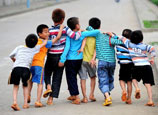
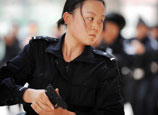
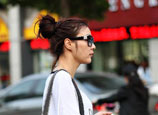
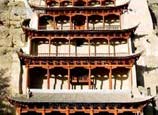


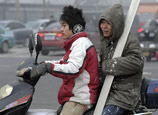






 Post office demolished by 'mistake' overnight
Post office demolished by 'mistake' overnight


![]()
